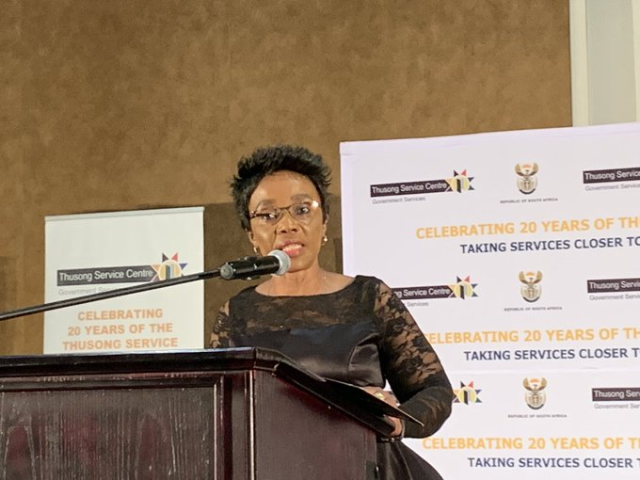South Africa Leads G20 Talks on Women’s Empowerment and Care Economy Reform
The four-day technical meeting has attracted an impressive array of G20 member states, guest countries, international organisations, and civil society groups.

- Country:
- South Africa
The Department of Women, Youth and Persons with Disabilities (DWYPD) is currently hosting the 3rd Technical Meeting of the G20 Empowerment of Women Working Group (EWWG) at the scenic Kruger National Park in Mpumalanga Province. Running from 01 to 04 July 2025, the gathering aims to elevate global discussions on gender equality, with a particular focus on the recognition and restructuring of care work—a critical but historically undervalued sector.
This high-level summit underscores South Africa’s leadership in championing women’s empowerment within the G20 framework, and its commitment to shaping policy conversations on inclusive economic and social development.
Theme Spotlight: Recognising the Care Economy
This year’s meeting theme, “The Care Economy – Paid and Unpaid Care Work and Household Responsibilities,” places a spotlight on the persistent inequalities associated with care work. These responsibilities—often performed without compensation—are disproportionately shouldered by women and girls globally.
“The topic aims to address long-standing disparities in the recognition and distribution of care work, which is essential to both household functioning and national economies yet remains undervalued,” explained DWYPD spokesperson Cassius Selala.
From unpaid domestic labor to caregiving for children, the elderly, and persons with disabilities, the care economy forms the backbone of societal functioning. However, it remains largely invisible in national accounting systems and overlooked in policy frameworks.
Global Participation and High-Level Engagement
The four-day technical meeting has attracted an impressive array of G20 member states, guest countries, international organisations, and civil society groups. Among those contributing are:
-
DWYPD Minister Sindisiwe Chikunga,
-
Delegates from United Nations Women, International Labour Organisation (ILO), World Health Organisation (WHO),
-
Academic experts from the University of Cape Town,
-
Representatives of G20 engagement groups including Women 20 (W20) and Women Empower 20.
Through presentations, panel discussions, and interactive sessions, these leaders and specialists are working collaboratively to produce evidence-based strategies that address gender inequalities in both economic and domestic spheres.
Key Focus Areas and Strategic Discussions
Delegates are engaging in critical discussions that explore the structural causes of gender inequality and potential policy interventions. The programme includes:
-
Global Care Landscape – Mapping the scope and conditions of paid and unpaid care work, particularly in underrepresented and marginalised communities.
-
Gender Responsive Budgeting – Sharing international best practices and lessons from the implementation of National Care Policies across different economies.
-
Gender-Based Violence and Femicide – Addressing the intersection between care work, safety, and structural violence against women.
-
Financial Inclusion for Women – Proposing an action plan to enhance women’s access to finance, credit, and entrepreneurship opportunities.
-
G20 Gender Mainstreaming – Evaluating efforts to integrate gender equality across all G20 Working Groups and Task Forces.
These sessions are intended to shape the G20’s policy agenda and serve as a resource for national governments seeking to design and implement effective gender equality frameworks.
Brisbane Goal 25x25 and SDG 5 Alignment
The outcomes of this meeting will directly contribute to the G20’s Brisbane Goal 25x25, which seeks to reduce the gender gap in labor force participation by 25% by the year 2025. The initiative also aligns with the United Nations Sustainable Development Goal 5, which aims to achieve gender equality and empower all women and girls.
“This engagement aligns with SDG 5 and the G20’s ongoing commitment to the Brisbane Goal 25x25,” Selala reiterated.
By focusing on care work, the EWWG is addressing a pivotal barrier to women's economic participation—one that often goes unnoticed but has long-term implications for equity, health, and development.
South Africa’s Leadership Role in the G20 EWWG As a leading voice in the G20 Empowerment of Women Working Group, South Africa is championing structural reform and inclusive policy development. Through its hosting of the 3rd Technical Meeting, the country is reinforcing its role as a regional and global advocate for:
-
Women’s full participation in governance and leadership,
-
Equal access to resources and economic opportunities,
-
Increased recognition and redistribution of unpaid care responsibilities,
-
Building institutional capacity to mainstream gender equality across all sectors.
Minister Chikunga has repeatedly stressed the importance of translating dialogue into action, ensuring that commitments made at the global level result in tangible changes at home.
Outcomes and Way Forward
The findings and recommendations from this technical meeting will be compiled into a working document to inform the G20 Leaders’ Summit and related policy platforms. The DWYPD has committed to advancing these outcomes through domestic reforms and global partnerships.
This includes pushing for the inclusion of care work in national labor statistics, promoting care-friendly economic policies, and scaling up investment in social infrastructure such as childcare and eldercare services.
Advancing Gender Justice through Global Collaboration
As the meeting continues at Kruger National Park, it is evident that momentum is building for transformative change in how societies value and support care work. South Africa’s stewardship of this vital conversation within the G20 affirms its dedication to advancing gender justice—not just as a policy goal, but as a foundational principle of equitable development.
By bringing global voices together to shape inclusive policies, the 3rd Technical Meeting of the G20 EWWG serves as a landmark event in the movement to empower women and rebalance the care economy.
ALSO READ
Bumper Crop: South Africa's Maize Harvest Set to Surge by 15%
Teen Prodigy Lhuan-dre Pretorious Breaks South African Cricket Record
Keshav Maharaj: South Africa's Spin Sorcerer Reaches 200 Test Wickets
Zimbabwe's Sean Williams Shines Amid South Africa's Commanding Lead
Sean Williams Shines Amidst South Africa's Commanding Test Performance









